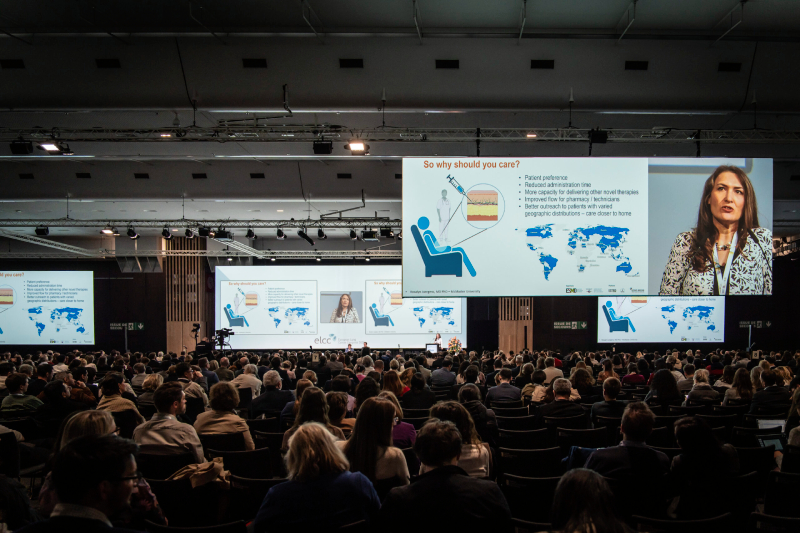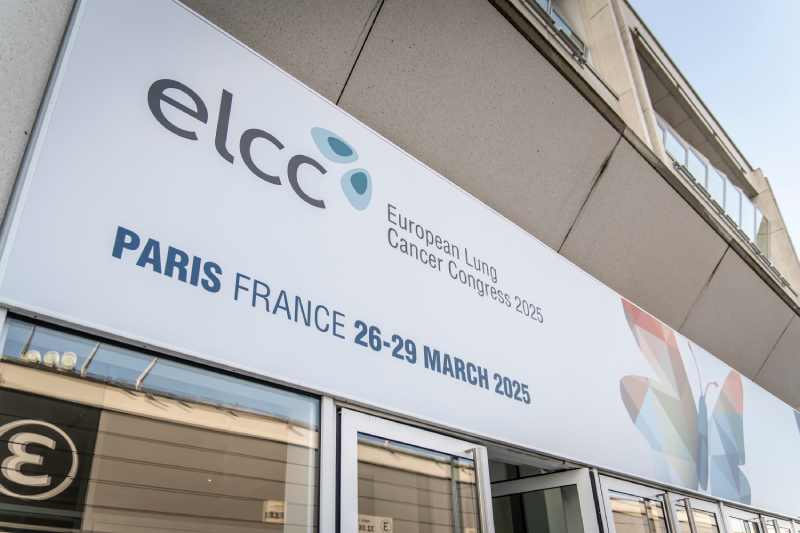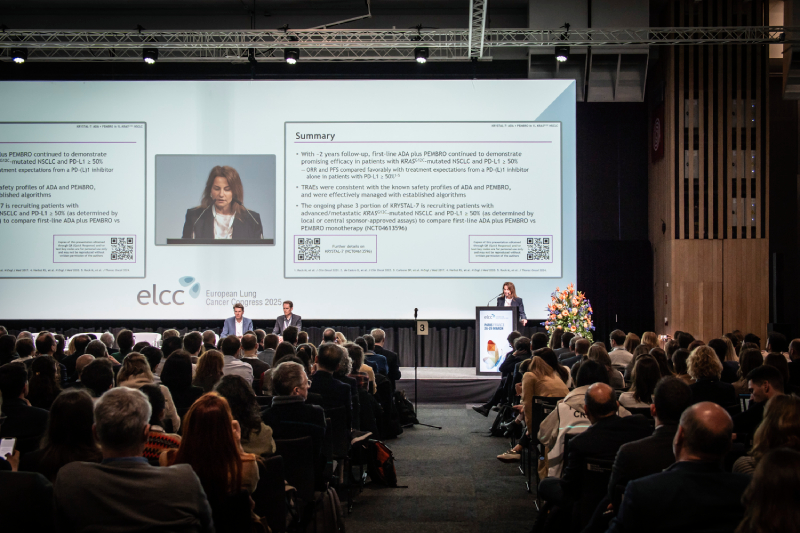
Patient selection for perioperative immunotherapies may be determined by specific intratumoral immune cells, according to Florian Eichhorn.
“The tumoral immune milieu plays a crucial role for the development of non-small cell lung cancer and may influence individual prognosis,” said Eichhorn and colleagues.
Following curative lung cancer surgery, the tumoral immune-cell infiltrate of 174 patients who had N1-positive NSCLC and adjuvant chemotherapy was analyzed using immunofluorescence staining.
The researchers examined density and distribution of specific immune cells in tumor center, invasive front, and normal tissue. At 5 years, tumor-specific survival (TSS) was 69.9% for all patients.
Compared with normal tissue, the density of tumor-infiltrating lymphocytes (TILs) was higher in tumor center and invasive front. Furthermore, high TIL density in tumor center was 86.7%, and high TIL density was associated with PD-L1 expression levels ³50%.
In addition, improved TSS was seen in patients who had cytotoxic T lymphocytes in tumor center and invasive front. “The assessment of specific intratumoral immune cells may serve as a prognostic predictor in pN1 NSCLC,” the researchers concluded.
However, this finding may not be true for patients who have adenocarcinoma or squamous cell carcinoma. The analysis identified accumulation of TIL and low Treg density in tumor center as negative prognostic predictors in squamous cell carcinoma. In adenocarcinoma, better survival was determined by M1-like tumor-associated macrophages and high PD-L1 status.







 © 2025 Mashup Media, LLC, a Formedics Property. All Rights Reserved.
© 2025 Mashup Media, LLC, a Formedics Property. All Rights Reserved.